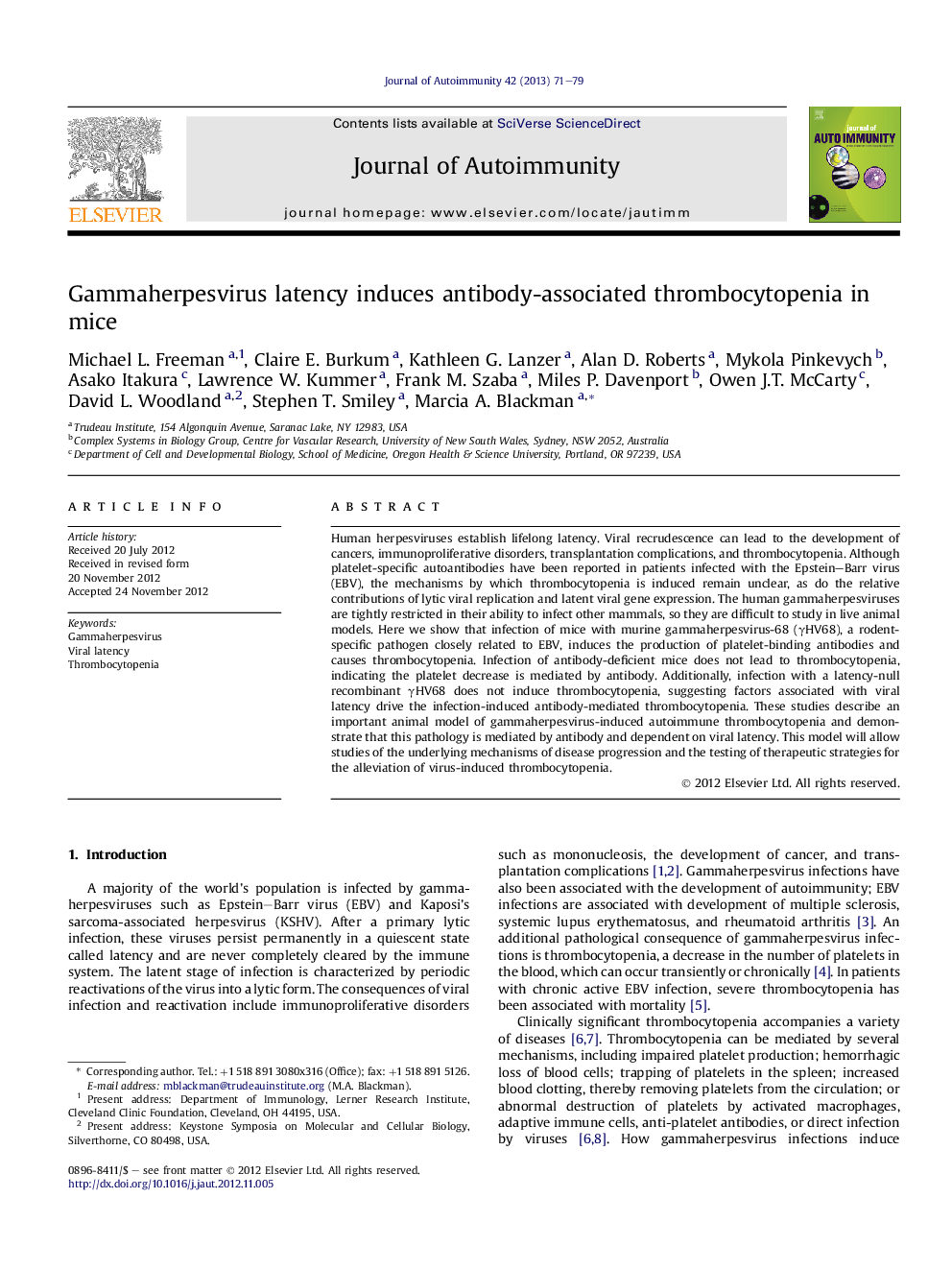| Article ID | Journal | Published Year | Pages | File Type |
|---|---|---|---|---|
| 3367883 | Journal of Autoimmunity | 2013 | 9 Pages |
Human herpesviruses establish lifelong latency. Viral recrudescence can lead to the development of cancers, immunoproliferative disorders, transplantation complications, and thrombocytopenia. Although platelet-specific autoantibodies have been reported in patients infected with the Epstein–Barr virus (EBV), the mechanisms by which thrombocytopenia is induced remain unclear, as do the relative contributions of lytic viral replication and latent viral gene expression. The human gammaherpesviruses are tightly restricted in their ability to infect other mammals, so they are difficult to study in live animal models. Here we show that infection of mice with murine gammaherpesvirus-68 (γHV68), a rodent-specific pathogen closely related to EBV, induces the production of platelet-binding antibodies and causes thrombocytopenia. Infection of antibody-deficient mice does not lead to thrombocytopenia, indicating the platelet decrease is mediated by antibody. Additionally, infection with a latency-null recombinant γHV68 does not induce thrombocytopenia, suggesting factors associated with viral latency drive the infection-induced antibody-mediated thrombocytopenia. These studies describe an important animal model of gammaherpesvirus-induced autoimmune thrombocytopenia and demonstrate that this pathology is mediated by antibody and dependent on viral latency. This model will allow studies of the underlying mechanisms of disease progression and the testing of therapeutic strategies for the alleviation of virus-induced thrombocytopenia.
► Murine gammaherpesvirus-68 infection leads to thrombocytopenia. ► Platelet-reactive antibodies develop after virus infection. ► Antibodies are required for virus-induced thrombocytopenia. ► Virus-induced thrombocytopenia requires the establishment of viral latency. ► Polyclonal B cell activation is a likely source of anti-platelet antibodies.
